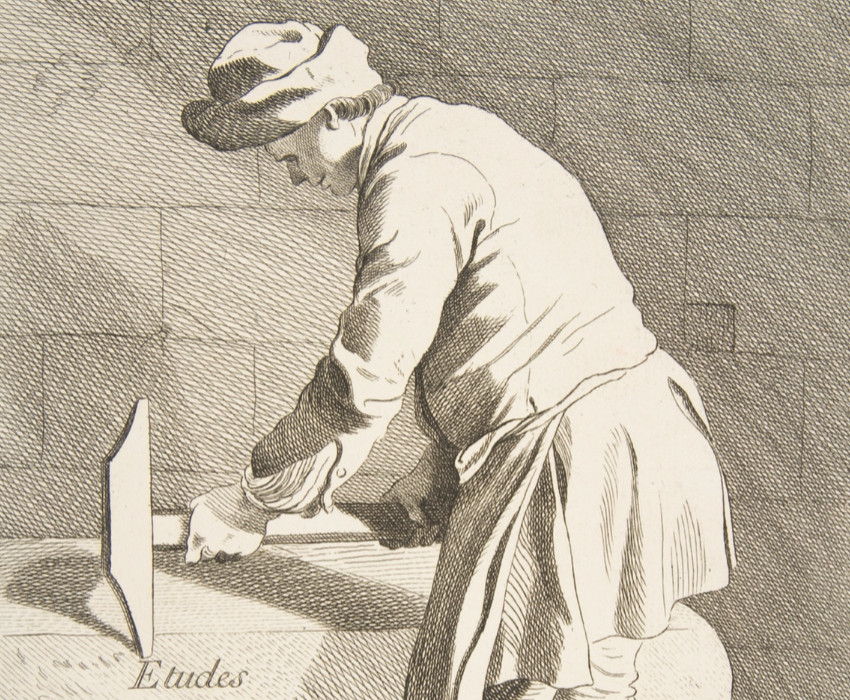Give Up Control of Your Assets? If You Want An Irrevocable Trust, That’s What You Have to Do
Here’s a riddle for you: What do stone cutters and irrevocable trusts have in common?
Answer: the phrase “carved in stone.”
Ok, like most Dad jokes, that riddle’s not funny, but the punchline is true. When it comes to chipping and shaping a block of stone or the requirements behind an irrevocable trust, neither one can be changed once it’s been executed.
(Well, that’s not exactly true—irrevocable trusts can be changed, but it’s incredibly hard to do. More on that later.)
An irrevocable trust is different from the one that most people use, which is a revocable one (that means the trustor can revoke or cancel it); and the assets you decide to transfer into an irrevocable trust won’t be under your control anymore.
Why would anyone ever want to do that? If this kind of trust is set in stone, why would you ever willingly give up flexibility and control to let someone else manage your assets?
It may not seem to make much sense to most people, but having an irrevocable trust can actually be useful for two basic reasons: tax benefits and asset protection.
Some Benefits
If you happen to have a very large estate—one that exceeds the $12.9 million exemption for individuals and $25.8 million for couples—you are liable to take a very large hit in the form of an estate tax as high as 40%.
But when you transfer your assets into an irrevocable trust and surrender all decision-making rights and control to a third-party trustee, you’re able to dodge that hit: The assets get removed from your taxable estate.
That still might not make sense to many people, but if you happen to work in a profession that has a tendency to involve lawsuits—as a doctor, for example, or a licensed contractor—this type of trust offers a way to shield your assets from the reach of any creditors and claims.
(Beware: There are still some pitfalls in using an irrevocable trust this way because a court can still decide that you unjustly moved funds into this trust because you were expecting a lawsuit.)
Some Disadvantages
By their nature, irrevocable trusts are extremely limited and inflexible. Once the assets get transferred into the trust, the trustor can’t change the terms.
Even if there’s a big financial crisis in the future and the trustor could really use those assets to get out of trouble, he or she can’t regain control of the trust in order to access them again.
That also applies to the trust’s list of beneficiaries. Five years from now, if the trustor has an argument with a beneficiary included in the trust and wants to remove him as a beneficiary, the trustor can’t. That person can be as annoying and frustrating as they want, and they’ll still get whatever assets they’re supposed to get as outlined in the trust.
Can an irrevocable trust ever be amended?
Despite what it says above, though, there are some special circumstances—very special ones—under which an irrevocable trust can be changed. The process is not easy or automatic. In fact, it requires the support of a lawyer like Christopher B. Johnson and his team to work with the trustor on his or her proposed changes.
Any person who is named in the trust—as an heir or a beneficiary, for example—must agree to any modifications that the trustor wants to make. If everyone unanimously approves the trust’s amendment, this can be done without the court’s approval.
But if any beneficiaries disagree with the changes—especially if it affects their share of the assets—then the trustor has to petition the court for help in modifying (or even terminating) the trust. Once the court gets involved, the process will involve delays, and even the outcome may be uncertain.
This whole process also runs the risk of being drawn out if some of the trust’s heirs, dismayed at the proposed changes, decide to file challenges—and there are even more complications involved if the trustor included a charity or several charities among the list of beneficiaries (which is the case with a charitable remainder trust).
***
That is why it’s crucial to enlist the help of an experienced probate attorney like Christopher B. Johnson.
Johnson and his team will help you navigate the potential hazards and questions involved whenever an irrevocable—or revocable—trust is involved. Contact his offices now for a free consultation.







 Let’s make a plan
Let’s make a plan